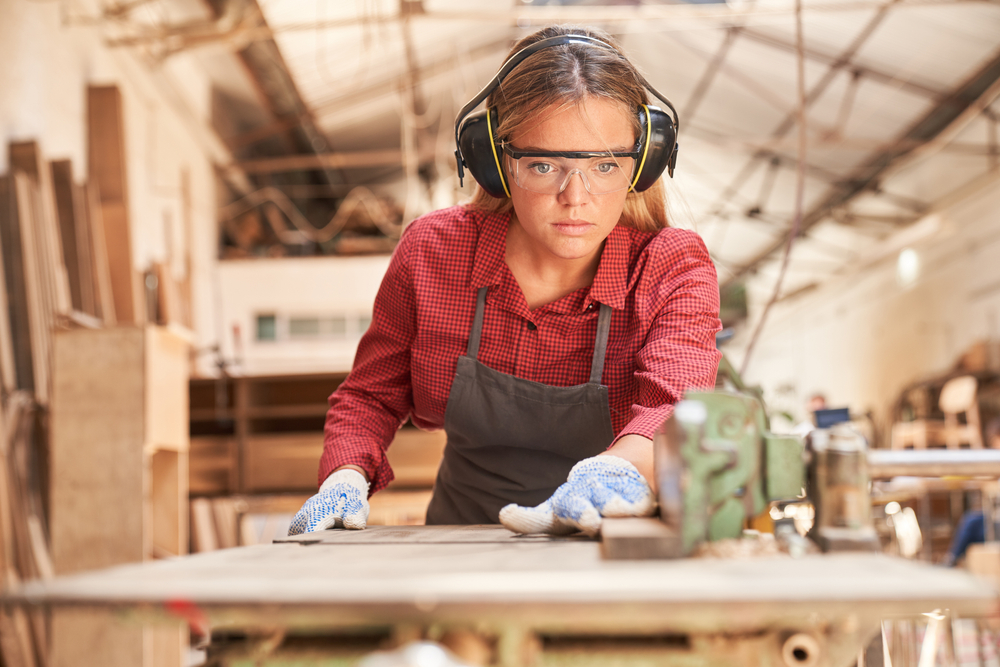
Whether you’re going to concerts, working, or doing some yard work, hearing protection is essential in keeping your ears safe from dangerous noise levels. However, several factors can interfere with the effectiveness of your hearing protection, leaving you exposed to potential risks. In order to understand and effectively maximize the advantages of your ear protection, it’s essential to understand these issues.
Common reasons why hearing protection fails
Even when you observe best practices, unforeseen issues can happen. You keep away from overly loud settings as much as possible, use earplugs at concerts, and vigilantly use earmuffs at work. However, the effectiveness of your hearing protection can be reduced by specific variables. Luckily, by recognizing these common pitfalls, you can make educated adjustments to ensure your hearing is always well-protected.
1. Selecting the wrong hearing protection for the circumstance
The effectiveness of hearing protection can be reduced by picking the wrong type for the given situation.
There are generally two primary categories of hearing protection:
- Earplugs: Small, flexible inserts that seat snugly inside the ear canal.
- Earmuffs: Bigger, headphone-like device that goes over the whole ear.
Each type has its ideal use case:
- Earplugs are best suited for settings with continual noise levels, including factory floors or airplane cabins.
- In settings like a construction site where noise is periodic and you might need to frequently remove your hearing protection, earmuffs are the more effective choice.
Earmuffs are easier to handle when there is a need to frequently put on and remove your hearing protection. However, earplugs, particularly disposable ones, can be easily lost, leaving you exposed when noise levels rise again. Choosing the correct hearing protection for your requirements is the first step toward protecting your hearing effectively.
2. Fit and function are affected by anatomy
Every individual’s ears are unique, meaning that not all hearing protection devices will fit everyone equally well. An average sized ear is what basic earplugs and earmuffs are designed for, but a more personalized solution may be needed for your ear’s anatomy.
- Smaller ear canals: The noise-blocking ability of standard-sized earplugs might not be effective if smaller ear canals prevent the formation of a proper seal.
- Larger ear structures: Oversized ears can make earmuffs uncomfortable, causing gaps in the seal that allow noise to enter.
Ill-fitting hearing protection can lead to frustration and a temptation to discontinue their use completely, putting your hearing at risk. If you spend substantial time in loud settings, think about investing in custom-molded earplugs or professionally fitted earmuffs. Choosing to go with a more customized approach will offer you increased comfort and effectiveness, keeping your hearing safe in any scenario.
3. Failing to maintain or replace ear protection
In order to stay effective, hearing protection devices need to be properly maintained just like any other devices do. Their ability to supply adequate protection can be jeopardized by things like incorrect cleaning, wear and tear, and failure to replace them when necessary.
The following are a number of tips on how to maintain hearing protection:
- Replace Cushions: Over time, earmuff cushions can lose their pliability. In order to maintain a tight seal, replace the cushions when necessary.
- Check for Damage: Frequently inspect the elastic band on earmuffs. Their ability to effectively block noise can be compromised if the elastic band is loose or stretched.
- Clean Properly: Debris and earwax can accumulate on your hearing protection over time. In order to safely and effectively clean your earplugs or earmuffs, consult the manufacturer-recommended cleaning instructions.
Ignoring these simple maintenance duties can leave your hearing protection less effective or even unusable. In order to ensure consistent and efficient performance, and to extend their lifespan, it’s crucial to keep these regular maintenance routines.
The role of a hearing specialist
Make an appointment with us for a consultation if you think that your hearing protection might not be working. We can check your present devices, recommend alternatives, and even offer personalized solutions tailored to your particular requirements.
Protecting your hearing is a lifelong commitment, and it’s worth the effort to ensure you’re using the proper tools for the job. By dealing with these common challenges, you can confidently protect your ears from harmful noise and preserve your hearing for years to come.